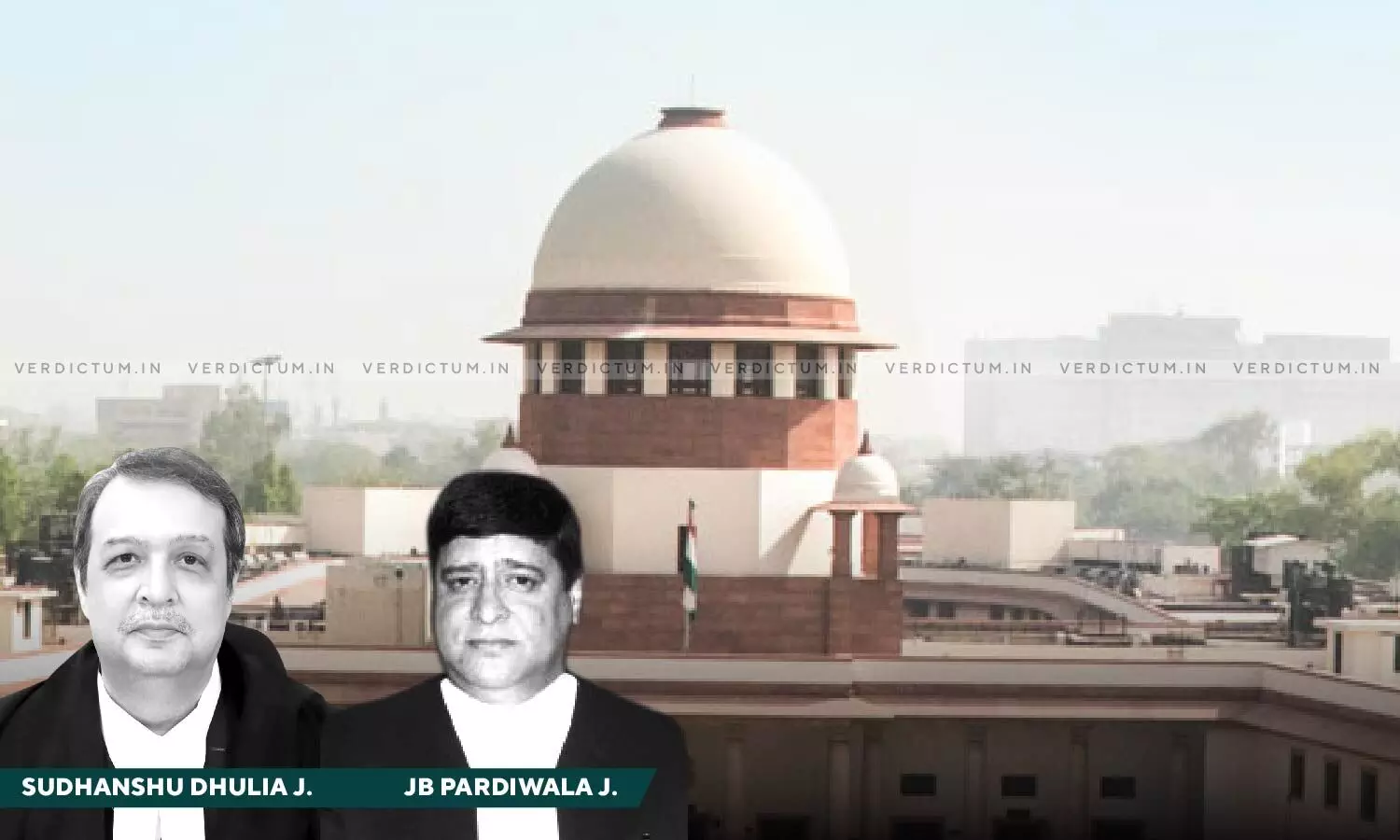
Hindu Marriage Act| A Marriage That Has Broken Down Irretrievably Amounts To Cruelty To Both Parties- SC
 |
|The Supreme Court in an appeal has held that a marriage that has broken down irretrievably amounts to cruelty to both parties i.e., the husband and wife under the Hindu Marriage Act, 1955.
The Court said that the multiple Court battles between both parties and the repeated failures in mediation and conciliation is at least testimony of the fact that no bond survives between the couple.
The two-Judge Bench comprising Justice Sudhanshu Dhulia and Justice J.B. Pardiwala observed, “Irretrievable breakdown of a marriage may not be a ground for dissolution of marriage, under the Hindu Marriage Act, but cruelty is. A marriage can be dissolved by a decree of divorce, inter alia, on the ground when the other party “has, after the solemnization of the marriage treated the petitioner with cruelty”7 . In our considered opinion, a marital relationship which has only become more bitter and acrimonious over the years, does nothing but inflicts cruelty on both the sides. To keep the façade of this broken marriage alive would be doing injustice to both the parties. A marriage which has broken down irretrievably, in our opinion spells cruelty to both the parties, as in such a relationship each party is treating the other with cruelty. It is therefore a ground for dissolution of marriage under Section 13 (1) (ia) of the Act.”
The Bench further said that the nature of the relationship, the general behaviour of the parties towards each other, or a long separation between the couple are relevant factors which a Court must take into consideration.
Senior Advocate S.K. Rungta appeared for the appellant/husband while Advocate S.K. Bhalla appeared for the respondent/wife.
Brief Facts -
The appellant had filed an appeal out of a divorce proceeding initiated under Section 13 of the Hindu Marriage Act whereby his suit was decreed and the marriage was dissolved by the order of the Additional District Judge and hence, the respondent filed an appeal before the Delhi High Court which set aside the order of the Trial Court. As per the appellant, his wife was not happy in their small dwelling and used offensive/abusive language against him and also got her pregnancy terminated without prior intimation to him.
The respondent left her matrimonial home but then started living together after getting convinced by the relatives but that did not last long and she again left thereby lodging a complaint with the police. It was further alleged by the appellant that he was beaten by his wife and her brother who kept him out of his own house for an entire night and hence, burdened with multiple litigations slapped on him, the appellant decided to end the marriage.
The Supreme Court in view of the facts and circumstances of the case noted, “Matrimonial cases before the Courts pose a different challenge, quite unlike any other, as we are dealing with human relationships with its bundle of emotions, with all its faults and frailties. It is not possible in every case to pin point to an act of “cruelty” or blameworthy conduct of the spouse.”
The Court further asserted that it is convinced that the continuation of such a marriage would mean a continuation of the cruelty which each now inflicts on the other.
“We have a married couple before us who have barely stayed together as a couple for four years and who have now been living separately for the last 25 years. There is no child out of the wedlock. The matrimonial bond is completely broken and is beyond repair. We have no doubt that this relationship must end as its continuation is causing cruelty on both the sides. The long separation and absence of cohabitation and the complete breakdown of all meaningful bonds and the existing bitterness between the two, has to be read as cruelty under Section 13(1) (ia) of the 1955 Act”, also noted the Court.
The Court observed that where the marital relationship has broken down irretrievably, where there is a long separation and absence of cohabitation with multiple court cases between the parties, then continuation of such a marriage would only mean giving sanction to cruelty which each is inflicting on the other.
“We are also conscious of the fact that a dissolution of this marriage would affect only the two parties as there is no child out of the wedlock”, said the Court.
The Court, however, directed the appellant to pay an amount of Rs. 30 lakh as permanent alimony to the respondent within four weeks considering the fact that he was an employee in LIC having a salary of Rs. 1 lakh per month.
Accordingly, the Court allowed the appeal, upheld the order of the Trial Court, set aside the order of the High Court, and granted a decree of divorce to the appellant.
Cause Title- Rakesh Raman v. Kavita